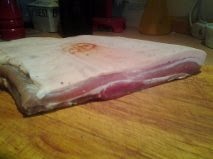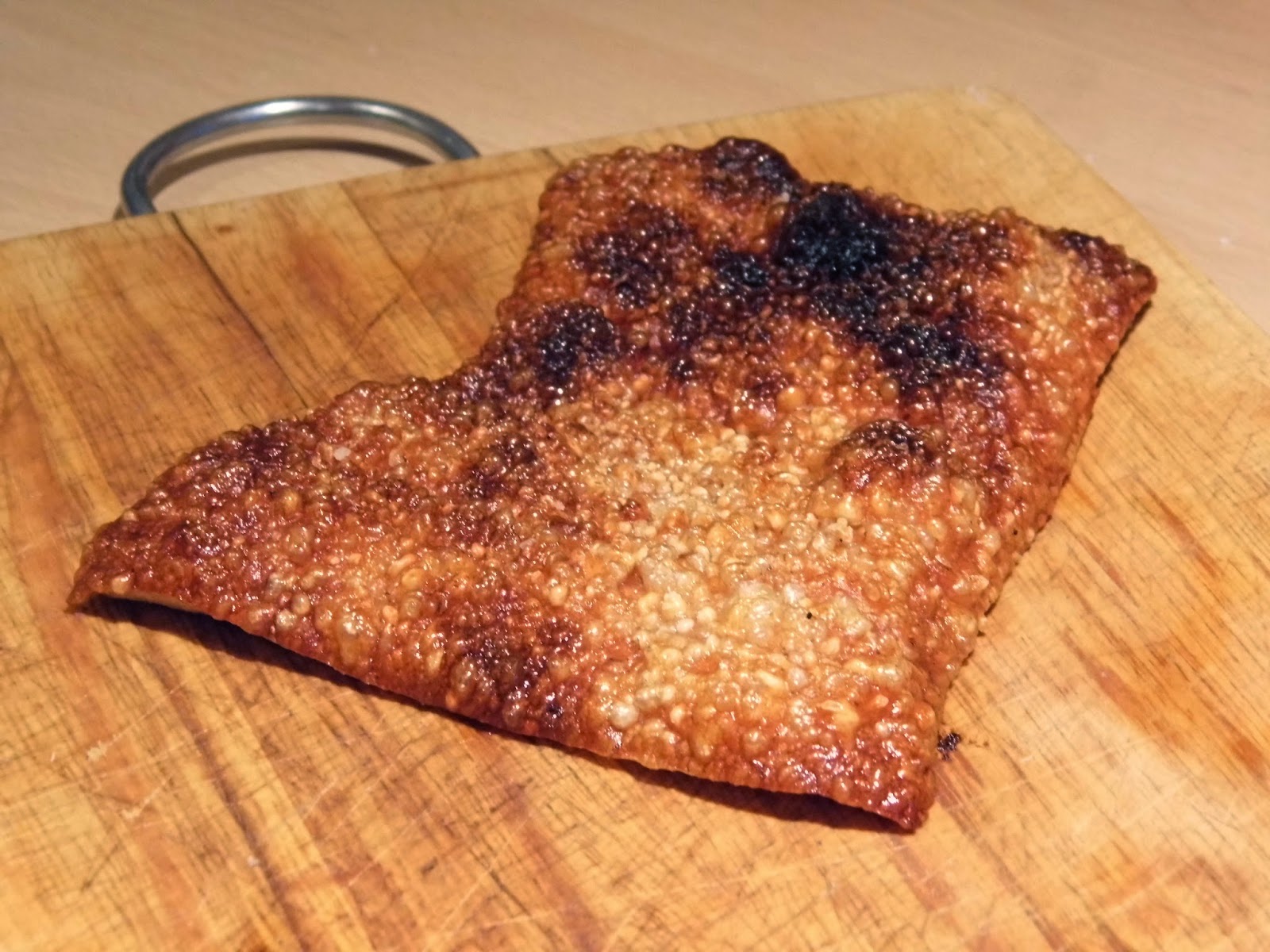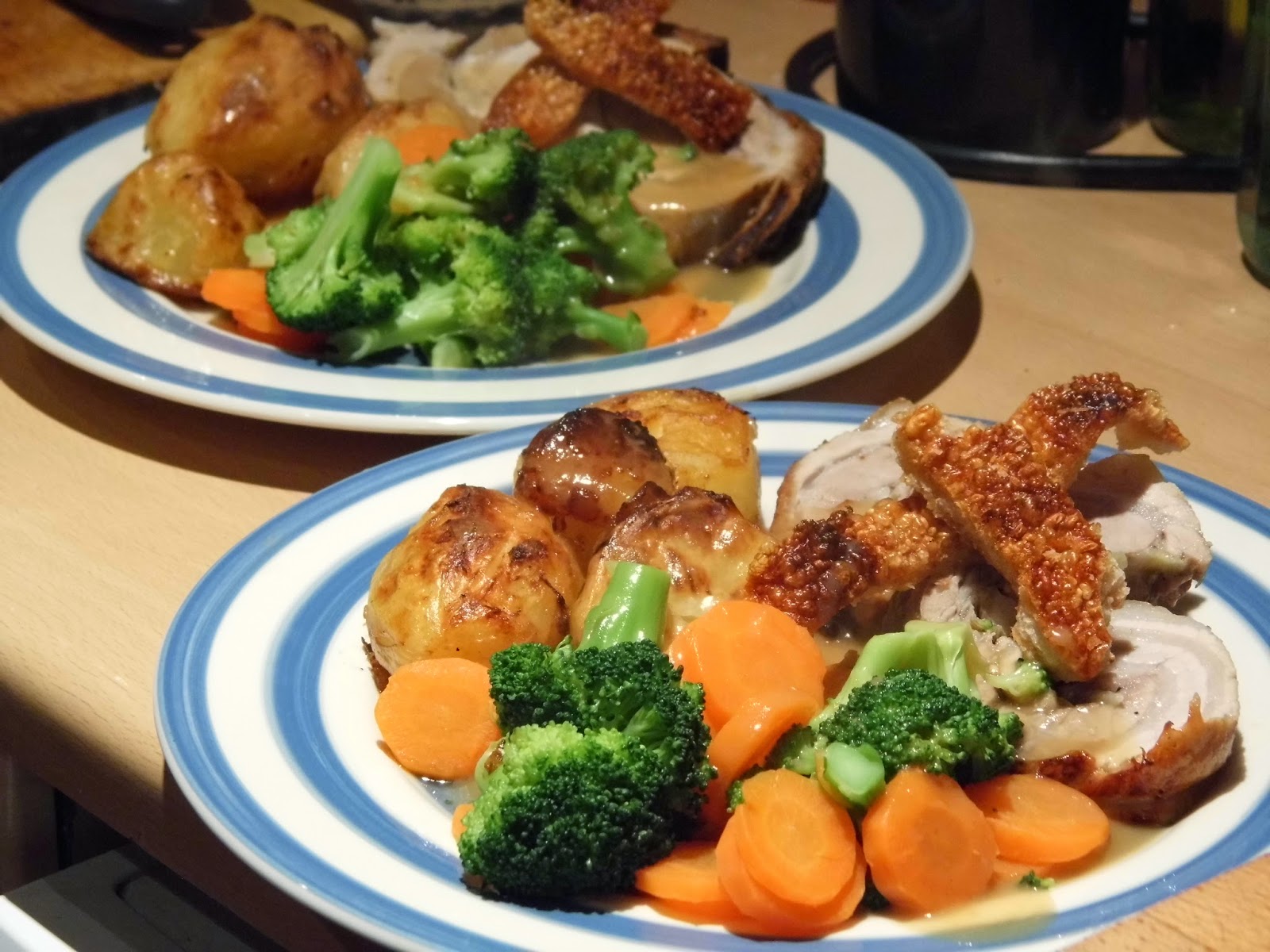Anyway, down to foody matters.
Yesterday I braised some red cabbage, it always amazes me how much one gets from a small red cabbage. The cabbage was finely sliced as was an onion and an apple (the variety was "Rudolf" appropriately). The onion was gently fried in too much butter in a casserole until it was just taking a little colour, the apple and the cabbage was then added and all mixed in. Some seasoning and some nutmeg, clove and cinnamon was then added with a big splash of cider vinegar and most of a can of cider. This was then covered and popped in a medium oven for about an hour and a half. After allowing this to cool it was bagged up in two bags and slid into the freezer. It will reheat perfectly in the microwave tomorrow. (see pics below)
 |
| One small red cabbage! |
 |
| Stirring before the oven |
While we are on the subject of vegetables:
The Brussels Sprouts will be blanched off first thing tomorrow and then refreshed under cold water. Just before serving they will be added to some cooked bacon lardons and the other packet of chestnuts. This glorious gang of three will then be rolled around a pan of hot butter until they are ready for the table.
Most celebrity chefs will tell you that you need to "en-robe" your carrots in an emulsion of cummin juice and larks tongue puree. Don't listen to these people, boil them and simply serve them with butte over them (ok, a little garlic salt as well, if you must) This is not the meal for which to produce glazed carrots - too much faffing.
There is a craze for honey glazed parsnips at the moment. I have never understood this. The humble, yet noble parsnip is wonderfully sweet already, just roast it near the meat to bring it to perfection.
Then there's the potatoes. Everyone has a quirk with their spuds. However, if you need flour to make yours crispy then you are trying too hard. Foe most of the UK, tomorrow will be chilly, this is perfect for roasties. Boil your peeled spuds for just 8 to 10 minutes, drain them and return them to the pan. Put this pan outside in the cold for 2 minutes (yes I am being serious) bring it back in and gently giggle the pan. The cold will mean that the outside of the spuds has dried very fast and the giggling roughs up the edges to catch the fat. Now pop these heroes of the roast into the fat near the beast and turn them once (and I mean only once) during their cooking - quirky enough for you?
As I sit here in Corner Cottage, this little house is filled with the smell of a gammon which is now cooling from its boiling and preparing to be smeared with marmalade and roasted for just half an hour. This will provide cold cuts and nibbly bits for the next five or six days.
Just a final word, whatever you are doing tomorrow please take just a couple of minutes during the day to count your blessings. A couple of minutes thought, a little meditation or a small prayer of thanks (if praying's your thing) will help you remember that we are lucky to be able to feast on this day.
Have a wonderful, peaceful and calm Christmas among those you love and love you.









.jpg)
.jpg)
.jpg)










